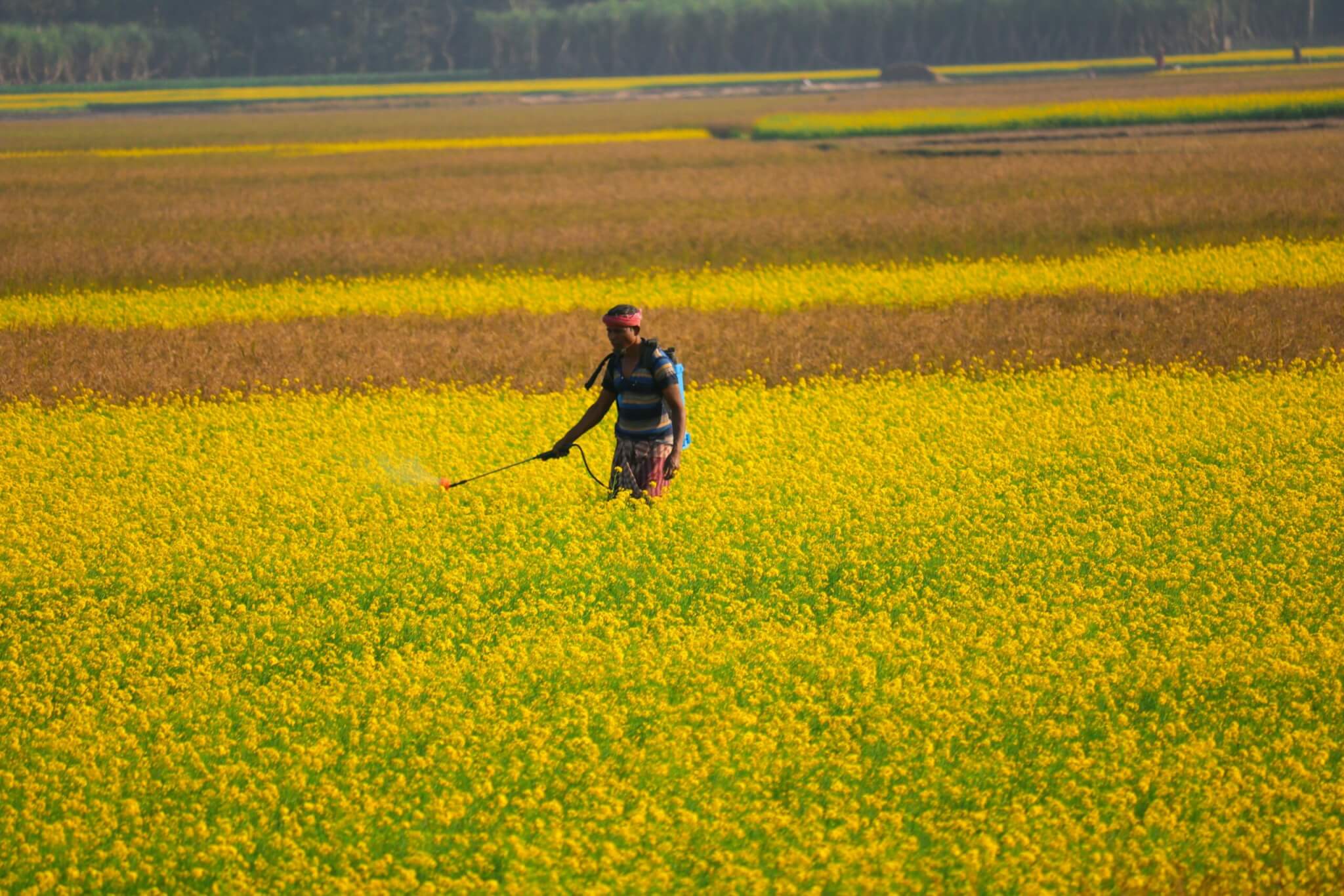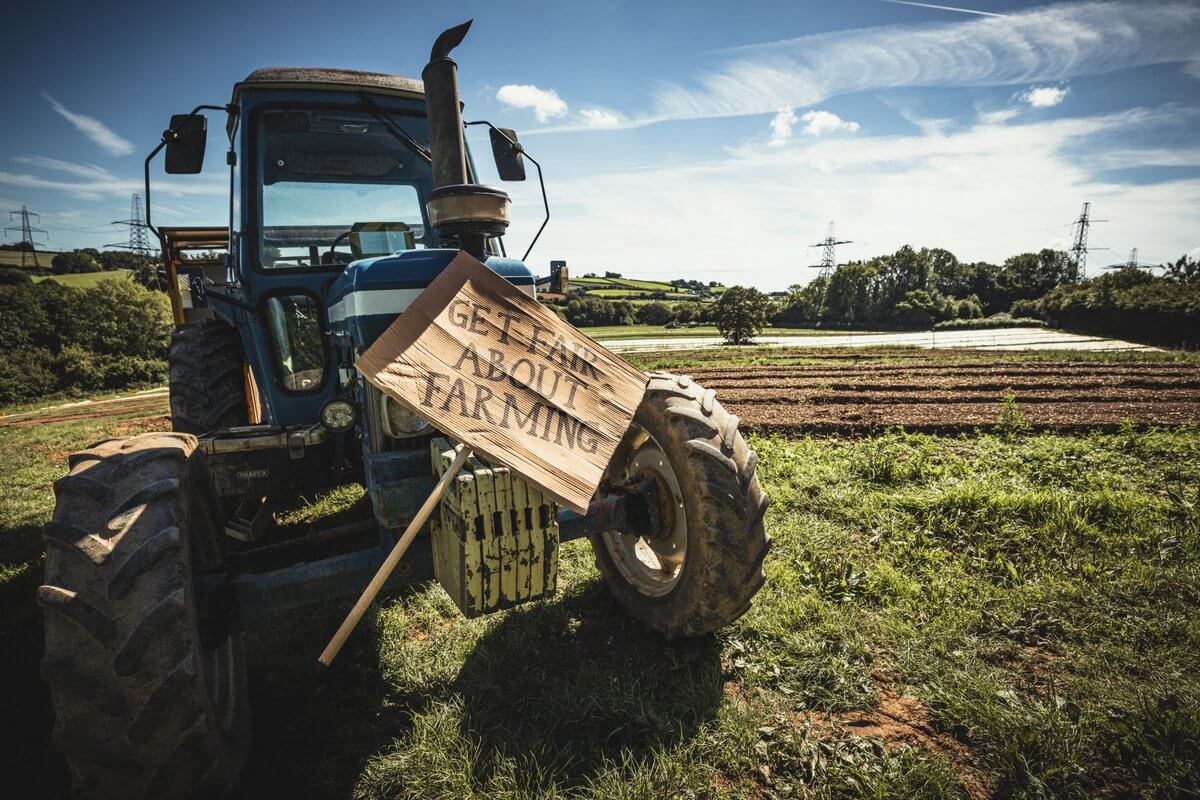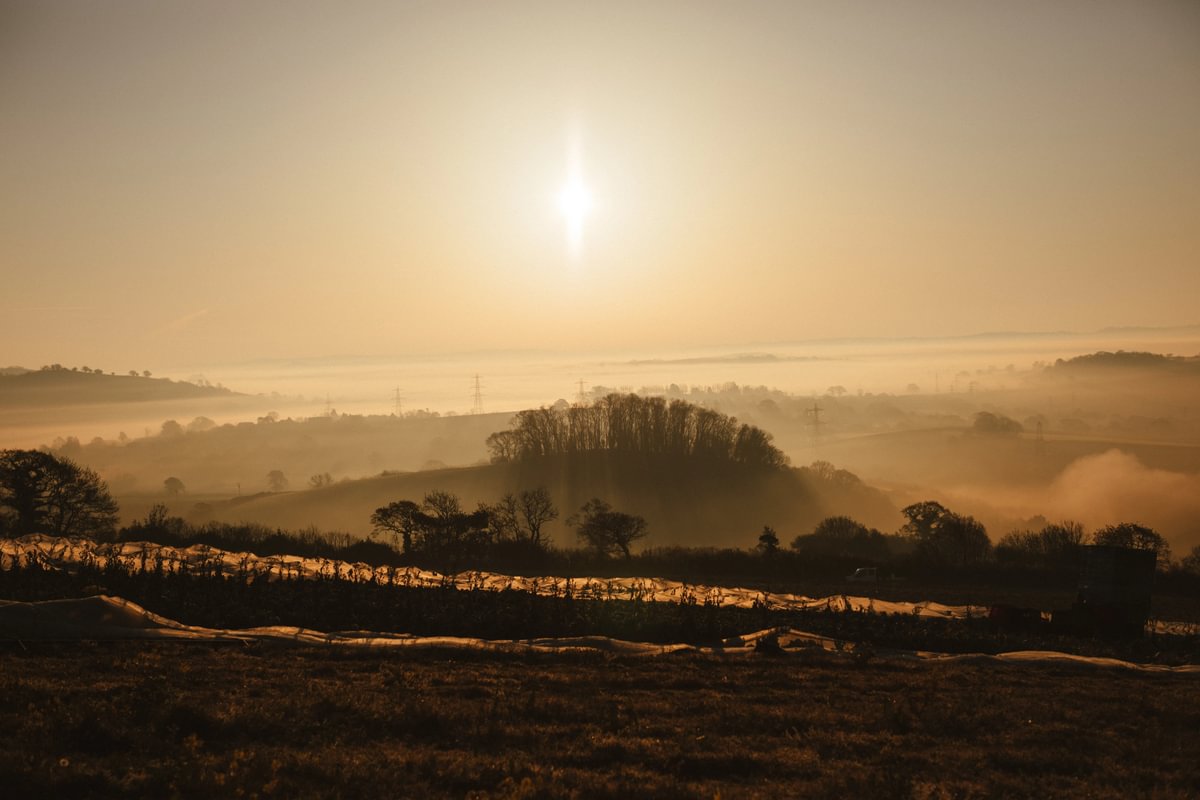Farmers are trialling homegrown alternatives to imported soya, a known cause of deforestation in the Amazon, to make a more sustainable animal feed.
After three years of farm trials facilitated by the Innovative Farmers research network and the Organic Research Centre, farmers have found three alternative protein sources for chicken and pig feed.
These include sprouting vetch seeds, where seeds are allowed to germinate; a product made by heating and dehulling beans to increase the nutritional value; and grain tailings, a by-product of domestic grain production.
Mike Mallett, an organic egg producer in Suffolk, led the sprouting seeds trial, and said the obstacles he faced say much about the challenges of replacing soya in animal feed.
“I’ve been trying to take soya out of my chicken feed for nine years and have grown all sorts of crops including sunflowers and lupins,” said Mallett. “But our farm has either been too cold, or perhaps too alkaline. Vetch, however, is something our farm can grow well.”
Despite the suitability and benefits of vetch, a legume that absorbs nitrogen from the air and releases it into soil, it historically has not been used as feed as it contains toxins that affect egg laying in chickens.
But the trials found that allowing the seeds to grow and sprout before feeding it to the hens, sufficiently reduced the toxicity.
According to Mallet, this method has the potential to be used across other egg farms seeking to reduce their reliance on soya.
“The trials have all been successful in their own way,” said Dr Lindsay Whistance, senior livestock researcher at the Organic Research Centre. “They’ve all highlighted existing potential in feed stuffs that can be adapted, helping to find solutions for reducing the need to import feed for pigs and poultry.”
Historically pig and chicken feed contain a high proportion of imported soya, a crop that doesn’t grow well in the UK, due to its high protein content and nutrient efficiency.
However, recent investigations have highlighted how the demand for the ‘miracle’ animal feed crop is a key driver of global deforestation, with the UK Roundtable on Sustainable Soya reporting that 38 per cent of imported soya in 2019 was from sources at risk of deforestation, and only 27 per cent of imports were from deforestation free-assured sources.

Concerned over the sustainability and the increasing price volatility of soya, farmers have been taking matters into their own hands.
Talking to Wicked Leeks ahead of his own soya-free trials last year, John Malseed, an organic turkey producer in Devon highlighted the growing trend of consumer interest in ethical supply chains: “Our own customers now ask us two main questions; do you use plastic packaging, and do you use soya in your feed?”
Particularly for organic farmers the use of soya in animal feed has seemed contrary to the values of organic production, but according to Jerry Alford, Innovative Farmers field lab coordinator, these trials could help the transition away from the problematic crop.
“The trial results offer a way to achieve 100 per cent organic feed without the carbon footprint associated with imported products, something that many producers have always felt goes against organic principles,” he said.













Jennyh
And all this time I was thinking that hens ate wheat and oat seeds! THe hidden costs of soya means we are destroying the lungs of the planet to feed to livestock. 8 billion people is just too many.
Leave animals off the menu. Haven’t we caused enough suffering to sentient beings? Just for palate pleasure? Being greedy is causing immeasurable suffering. Give earth, animals and humans a chance? Going vegan is the best way forward!
I agree, leave animals off the menu, we do not need to eat them, we should not be prepared to inflict the inevitable suffering they experience.
I am aware, however, that there is an argument for rearing livestock to benefit the land, I know little about it, except for the few articles I have read on this site. I hope we can come up with an alternative to this as well, especially in places where crops are difficult, if not impossible to grow. I am impressed, at least, that the farmers described in this article, are trying to avoid using soya, at least this is a step in the right direction and I respect their efforts.
Firstly less but better meat or no meat of course.
Then secondly there are potential alternatives to imported soy
Some scientists in Germany worked on a citizen science project looking at breeding soya that might grow in germany https://link.springer.com/article/10.1007/s00122-018-3134-2#Sec12
This is longer term idea and may perpetuate monocropping depending on how growing new cultivars was managed.
There was also a study looking at feasibility of growing lupins done by the Welsh including effectiveness in feed mixes.
https://businesswales.gov.wales/farmingconnect/sites/farmingconnect/files/alternative_sources_of_protein_for_animal_feed.pdf
Then lastly there are systems in japan that allow use of waste food to feed pigs with less risk than there may be for traditional pig swill.
http://www.ideassonline.org/public/pdf/JapanResiduiOrganici-ENG.pdf
I would argue that all of these strategies, eating less meat, growing feed crops in the UK or EU with better regulation and using food waste for feed, need to be employed. Plus perhaps having poultry and egg production systems that are linked, to reduce the environmental impact.
Absolutley: In an ideal world we’d only eat meat that was reared on UK farmland that was unsuitable for human edible crops or fed by byproducts, like food waste or land unable to grow human standard crops. This is what Tara Garnett terms the ‘ecological leftovers’.
https://awfw.org/wp-content/uploads/pdf/FCRN-Livestock2009.pdf
I mean originally farm animals were there to close the loop, pigs and chickens to eat the odds and ends, and beef and cattle to graze the land in fallow, or too poor to cultivate. Obviously, we’re a long way from this point.
In the meantime we’re a long way from that point, importing over 3.2 million tonnes of soy a year to fuel oru obsession with chicken and pork, completely decoupled from their role as nutrient recylers.
How to reduce meat consumption, well that’s a question for the ages. It doesn’t look like it’s slowing down either. Have you got any ideas?
Yes……… but it requires buy-in and policy change from companies, financiers, governments, pan governmental bodies and citizens.
At least the most recent IPCC report does put greater emphasis on the role of food systems on GHG emissions so perhaps awareness will increase?
To start, the following:
Wind down subsidies that support production of animal foods.
Incentivise finance to stop supporting industrialised farming that damages ecosystems and contributes to high GHG.
Public procurement that is designed to transition to food services and that champion plant rich diets and uses food from regenerative farms that is in season local/regional/national/same continent).
Carry on good work by some in food service, There are already some folk in food service pushing better training for chefs and investigating how to make plant rich menus appeal broadly to customers.
Mythbusting of misconceptions about daily protein requirements for an average person (olympians may have higher requirements but no one else). The Game Changers movie is a good start.
So true, hard to say if there’s buy-in from gov. The awareness of soy’s impact is increasing but is gov going to do anything about it, from Eustice’s speech at the SA conference, it doesn’t seem bloody likely.
On the demand side, it also seems as unlikely that the gov will communicate that we should eat less meat: still all about freedom of choice. Much to the chagrin of the civil servants I’ve talked to, who say that they can inform the ministers all they like, but this is not something they’re prepared to do.
Public procurement seems like an easy win, and hopefully the response to the National Food strategy will include action on this. Although there seems to be some good things happening with Dynamic Food Procurement happening at the South West Food Hub, and Food for Life run by the Soil Association.
Have you heard of FAIRR? They’re an investor network worth over $52 trillion dollars that aims to spread awareness of the impacts of the intensive animal sector. Pretty cool!